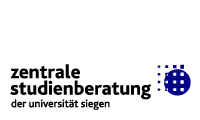Zentrale Studienberatung
im F-S Gebäude
Sandstraße 16-18
57072 Siegen
Erreichbarkeit der
studentischen Hotline:
0271 740-2712
Mo - Do: 9 - 16 Uhr
Fr: 9 - 12 Uhr
Mail:
info.studienberatung[at]
zsb.uni-siegen.de
Terminvereinbarung für eine Beratung über:
0271 740-2712
International Students
You find information about the admission procedure here:
STARTING
Impressum
Electrical Engineering (Study Foci: Electronics Design and Communication Engineering)

Short Information
| Restricted
admission |
Regular
study time |
Winter
semester |
Summer
semester |
|---|---|---|---|
| no | 4 semester | ✔ | ✔ |
Admission procedure
Application required
You can apply here
Degree
Master of Science
More information
Language of instruction
English
Deadlines
The degree program
The Master's programme in Electrical Engineering trains students with specific expertise in key areas of Microelectronics Design and Communication systems including theoretical foundations, practical skills and knowledge about application areas in Analogue and Digital Integrated Circuits, Semiconductor Physics, Photonics, Embedded Systems, Digital Communications and High-Frequency engineering.
Students must select one of the two specialisations offered
in English – Electronics Design and Technology (EDT) or
Communication Engineering. The EDT covers Microsystems and
Integrated Circuit design. In both themes, students will gain
in-depth knowledge and can choose from a wide-ranging catalogue
of modules. Three quarters of the course will be the final
masters thesis.
In addition, the department also offers a specialisation on
“Automatisierungstechnik” which is offered in German. For
further details, please refer to the German language version of
this website.
Electronics Design and Technology Specialisation
This specialisations trains students in the design of micro and nano electronics devices and circuits. VLSI Integrated Circuits and photonic systems have revolutionised our lives with low cost, high performance and powerful computing and sensing devices becoming omnipresent, in form of handheld computers like mobiles and laptops as well as high-end computing and AI systems. This course trains engineers in advanced design, build and test of electronic components required for these developments. They gain diverse experience ranging from cleanrooms fabricating nanoscale electronic devices to designing IC in state-of-the-art software to developing Photonic systems.
Communication Engineering Specialisation
Communication is vital to our continued interconnected world and our lives have come to depend to secure, sustained and rapid communication. This specialisation trains students in theoretical as well as practical skills for analysis and design of a diverse range of communication systems as well as components required to build them.
Admission requirements
1) Anyone who has successfully completed the Bachelor's degree program of electrical/electronics engineering or equivalent with a solid basis in the area of the chosen study focus or an equivalent first degree qualifying for a profession.
2) In special exceptions, the relevant
examination board will decide on a case-by-case basis.
The examination regulations relevant at the time shall
apply.
Study organization
Examination regulations/degree plan/module
manuals/internship rules
Examination regulations (POs) specify the basic structures of a
degree program (e.g. admission requirements and contents to be
studied). Students are automatically subject to the current
version of their PO when they matriculate for their first
subject-related semester. This means that even if the PO
changes during their studies, the original version according to
which they matriculated will remain valid (provided that the PO
does not expire).
The respective degree plan is the recommended example progress
of the studies in individual subjects and is part of a PO.
Supplementary provisions and details for any module to be
studied can be found in the module manually (e.g. requirements
for taking a written test or content-related information on the
modules/events, ...). The internship rules define the
conditions under which the required or optional internships
must be completed.
We recommend at least looking at the study schedule for your
degree program before the lecture time starts, to ensure that
you know which modules are intended for the start of your
studies.


